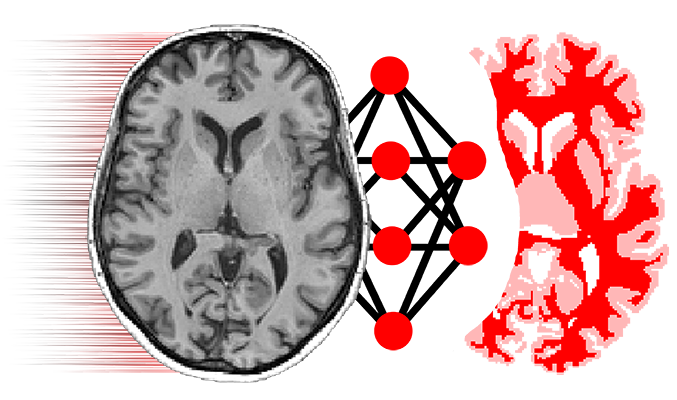Source code for niftynet.layer.approximated_smoothing
# -*- coding: utf-8 -*-
from __future__ import absolute_import, print_function, division
import tensorflow as tf
from niftynet.layer.base_layer import Layer
from niftynet.layer.layer_util import \
expand_spatial_params, infer_spatial_rank
from niftynet.utilities.util_common import look_up_operations
"""
This class approximates image smoothing using separable 1D kernels.
(This layer is not trainable.)
"""
[docs]def gaussian_1d(sigma, truncated=3.0):
if sigma <= 0:
return tf.constant(0.0)
tail = int(sigma * truncated + 0.5)
sigma_square = sigma * sigma
k = [(-0.5 * x * x) / sigma_square for x in range(-tail, tail + 1)]
k = tf.exp(k)
k = k / tf.reduce_sum(k)
return k
[docs]def cauchy_1d(sigma, truncated=5.0):
if sigma <= 0:
return tf.constant(0.0)
tail = int(sigma * truncated + 0.5)
k = [((float(x) / sigma) ** 2 + 1.0) for x in range(-tail, tail + 1)]
k = tf.reciprocal(k)
k = k / tf.reduce_sum(k)
return k
SUPPORTED_KERNELS = {'gaussian': gaussian_1d, 'cauchy': cauchy_1d}
[docs]class SmoothingLayer(Layer):
"""
computing 1d convolution one each spatial dimension of the input
using one-dimensional filter.
"""
[docs] def __init__(self, sigma=1, truncate=3.0, type_str='gaussian'):
"""
:param sigma: standard deviation
:param truncate: Truncate the filter at this many standard deviations
:param type_str: type of kernels
"""
Layer.__init__(self, name='approximated_smoothing')
self.kernel_func = look_up_operations(
type_str.lower(), SUPPORTED_KERNELS)
self.sigma = sigma
self.truncate = truncate
[docs] def layer_op(self, image):
"""
:param image: in shape `(batch, x[, y, z], feature_channels)`
:return: spatially smoothed image
"""
spatial_rank = infer_spatial_rank(image)
_sigmas = expand_spatial_params(input_param=self.sigma,
spatial_rank=spatial_rank,
param_type=float)
_truncate = expand_spatial_params(input_param=self.truncate,
spatial_rank=spatial_rank,
param_type=float)
if not all(_sigmas):
# return the original image if any sigma is zero
return image
def do_conv(input_tensor, dim):
assert dim < spatial_rank
if dim < 0:
return input_tensor
# squeeze the kernel to be along the 'dim'
new_kernel_shape = [1] * (spatial_rank + 2)
new_kernel_shape[dim] = -1
kernel_tensor = self.kernel_func(
sigma=_sigmas[dim], truncated=_truncate[dim])
kernel_tensor = tf.reshape(kernel_tensor, new_kernel_shape)
# split channels and do smoothing respectively
chn_wise_list = tf.unstack(do_conv(input_tensor, dim - 1), axis=-1)
output_tensor = [
tf.nn.convolution(input=tf.expand_dims(chn, axis=-1),
filter=kernel_tensor,
padding='SAME',
strides=[1] * spatial_rank)
for chn in chn_wise_list]
return tf.concat(output_tensor, axis=-1)
return do_conv(image, spatial_rank - 1)
